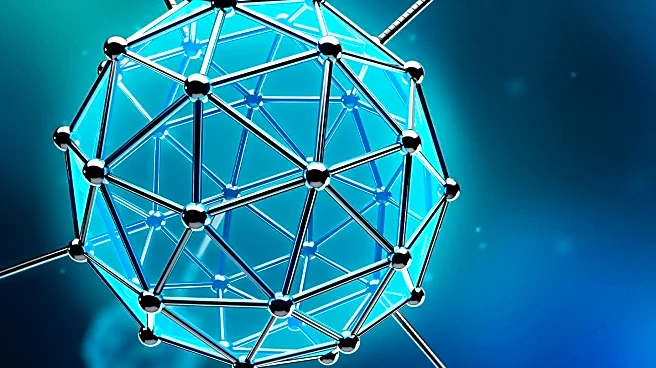What is the story about?
What's Happening?
Researchers at the University of California, San Francisco (UCSF) have developed a novel approach to improve the efficacy of CAR T cell therapy for treating metastatic urothelial carcinoma (mUC), a prevalent form of bladder cancer. The team, led by Jonathan Chou, MD, Ph.D., and Kevin Chang, MD, discovered that using thiazolidinediones, a class of diabetes drugs, can enhance the expression of NECTIN4, a protein targeted by CAR T cells. This enhancement makes tumor cells more susceptible to NECTIN4-CAR T therapy. The study, published in Nature Communications, highlights the potential of combining these diabetes drugs with CAR T therapy to improve treatment outcomes for patients with mUC, particularly those resistant to existing therapies.
Why It's Important?
This development is significant as it addresses the challenge of treatment resistance in metastatic urothelial carcinoma, which has a low five-year survival rate. By repurposing diabetes medications to increase NECTIN4 expression, the researchers have potentially expanded the therapeutic window for NECTIN4-targeting therapies. This could lead to more effective treatments and improved survival rates for patients with advanced bladder cancer. The study underscores the importance of innovative approaches in oncology, where existing drugs are repurposed to enhance the efficacy of cancer therapies, offering hope for better management of resistant cancer types.
What's Next?
The promising preclinical results pave the way for further development and clinical trials of this combined therapy approach. Researchers will likely focus on optimizing the drug combination and dosage to maximize the therapeutic benefits while minimizing side effects. If successful, this strategy could be extended to other cancers expressing NECTIN4, broadening the impact of this research. Collaboration with other institutions, such as the Memorial Sloan Kettering Cancer Center, may also continue to validate these findings and explore additional applications.

















